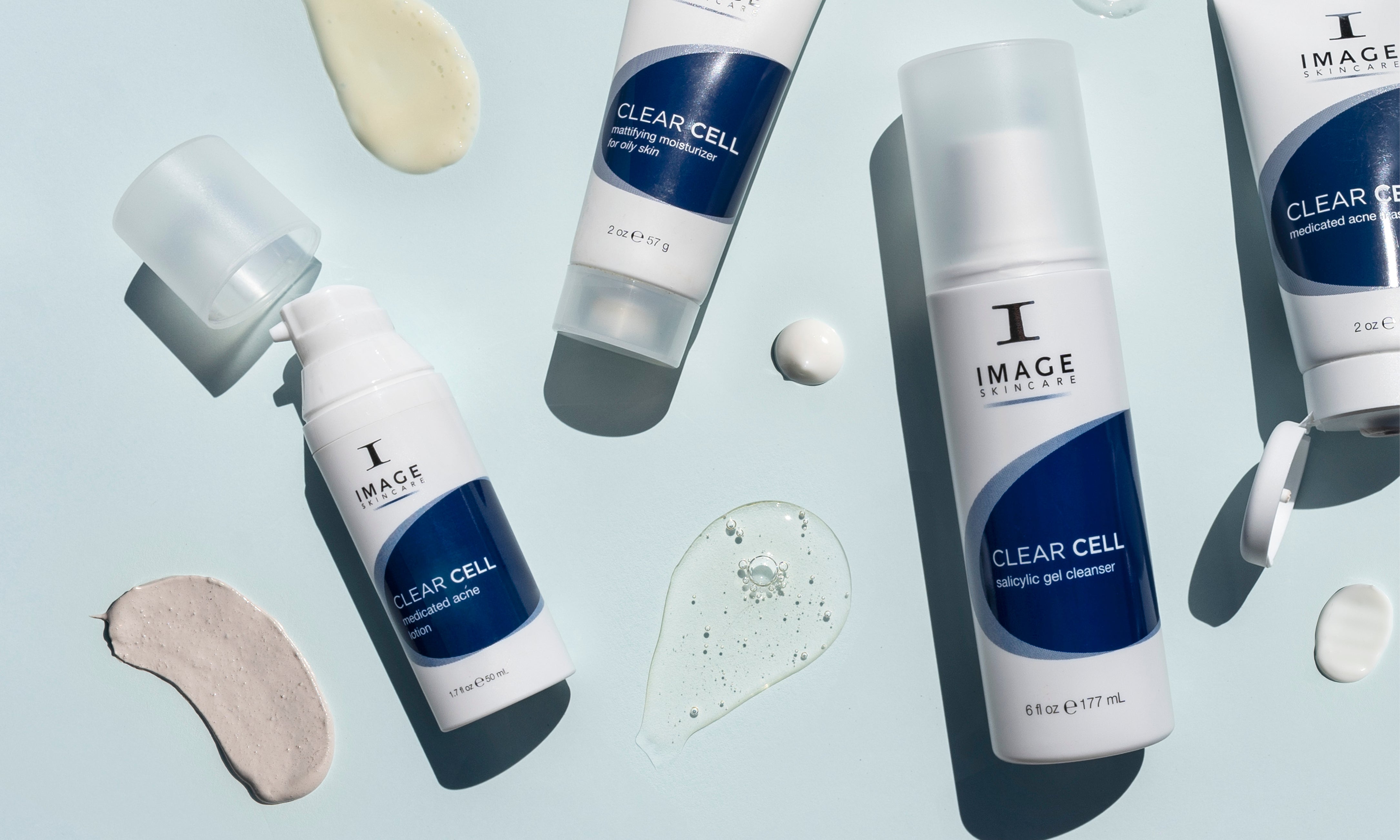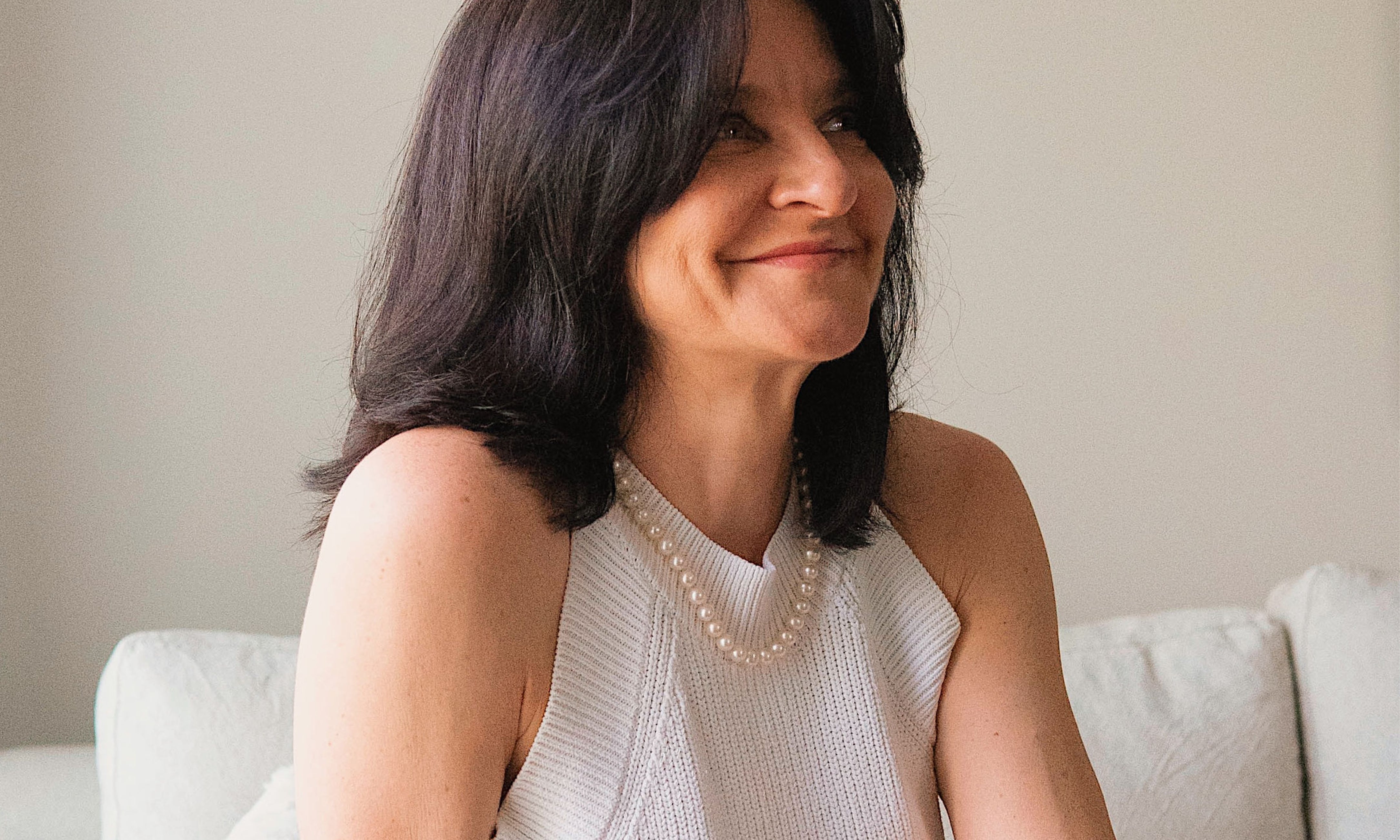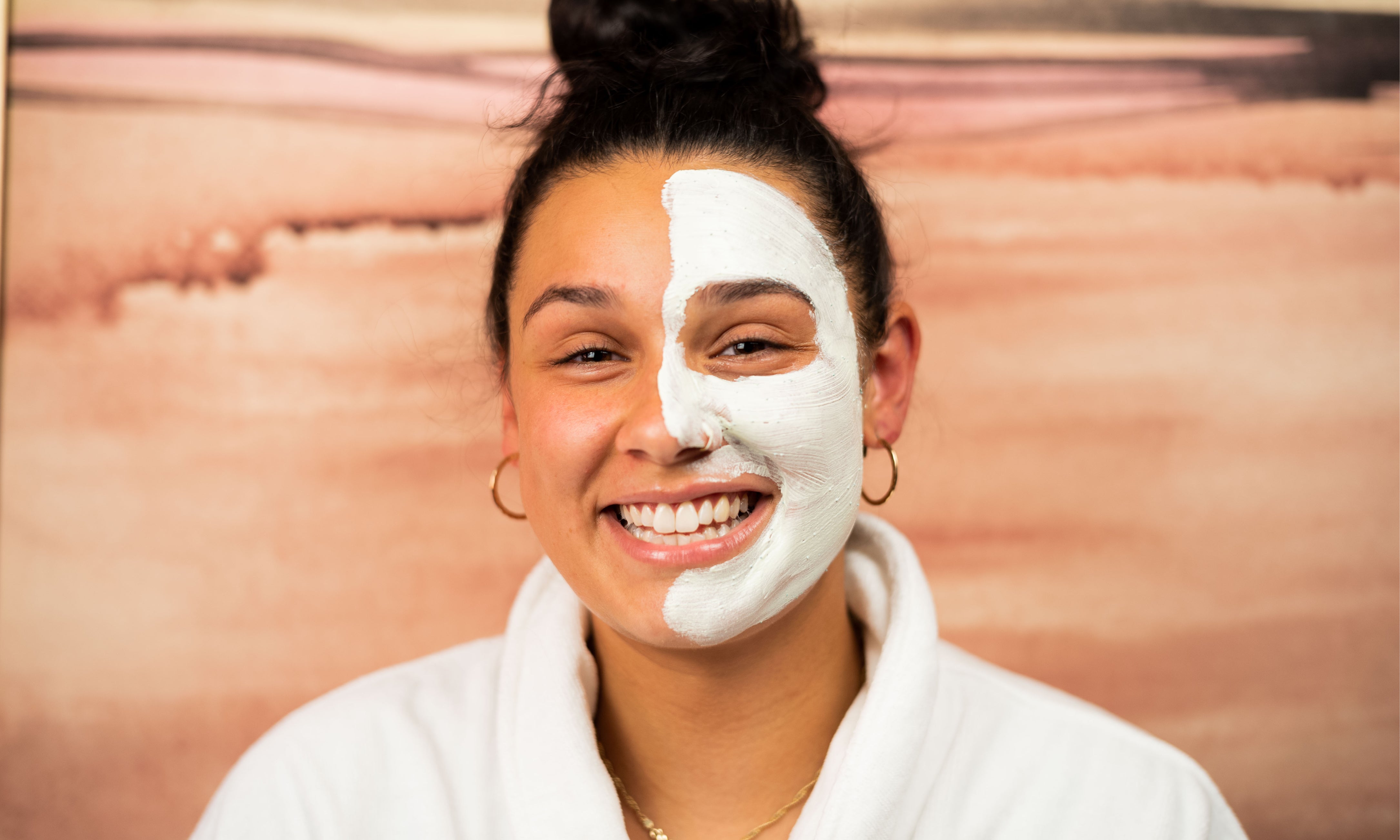
STRESS ACNE
Maybe you’ve never heard of the term before, but you’ve definitely seen its effects––how many times has a breakout popped up right before a big event, a trip, or a final exam? Probably more times than you can remember!
While the causes of acne––the most common skin condition in North America according to the American Academy of Dermatology Association––varies depending on each person, stress and acne share a strong relationship. Because acne is more often than not caused by hormonal fluctuations, when we start to experience any type of stress, our skin reflects it.
WHAT IS STRESS ACNE?
Stress-induced acne is an umbrella term that englobes all forms of acne (including blackheads, whiteheads, cystic breakouts, etc.). Stress acne tends to appear on the lower half of the face and tends to be more inflammatory (think red, painful, cystic-like bumps) rather than comedonal (as in blackheads and whiteheads). It will appear when we go through periods of elevated cortisol levels and pronounced hormonal fluctuations.
HOW IS STRESS ACNE TRIGGERED?
Stress triggers your adrenal glands to release cortisol (AKA the stress hormone) which is notorious for a ton of ill side-effects when in the body for prolonged periods.
Because hormones stimulate our sebaceous glands, high cortisol levels increase their production of sebum. This additional oil clogs the pores leading to the development of inflammation and bacteria, often resulting in acne. Beyond acne, stress can also magnify other skin disorders such as eczema, psoriasis, and rosacea.
WHO GETS STRESS-ACNE?
No one is immune to stress, which means nearly all of us will experience stress-induced acne in our lifetimes. However, some genetic predispositions, as well as age and gender, can affect who is more likely to experience severe breakouts.
THE DOs AND DONTs OF TREATING STRESS ACNE:
- DO reach for a cleanser with salicylic acid can help control the excessive sebum production that results in clogged pores.
- DO follow up with an alpha-hydroxy acid (AHA) or retinol treatment 2-3 times a week will help slough off any dead skin cells that can lead to clogged pores. Moderation is key here, as too much can trigger even more irritation and damage your skin barrier (your skin’s first line of defense against bacteria).
- DO avoid vigorous scrubbing and using piping hot water on your face, as excess heat can cause inflammation that re-injures scar tissue and interferes with the skin’s healing process.
- DON’T believe sun exposure can “dry” up your acne. Not only can it put you at greater risk for sun damage and skin cancer, but it can lead to dark spots and scarring. Also, keep in mind some acne medications can also make you more sensitive to the sun: hence, you should never leave the house without adequate SPF protection!
- DON’T let acne keep you from putting your best face forward! You can also schedule your virtual consultation with our medical aestheticians in order to find a skincare regimen that works effectively in managing and preventing your breakouts.
IN CONCLUSION
Our bodies are incredible at letting us know what is wrong. If stress is manifesting itself physically, it is signalling to you that you may need a shift in your self-care.
And lastly: September is Acne Awareness Month! For more info about all things acne-related, including how to treat adult acne, make sure to check out our past blogs. Here are a few of our favourite acne treatments:
VIVIER SKIN ACNE TREATMENT SYSTEM $112
SKINMEDICA ACNE TREATMENT BUNDLE FOR SENSITIVE SKIN $207
IS CLINICAL ACNE TREATMENT BUNDLE FOR DRY SKIN $445
IMAGE SKINCARE CLEAR CELL MEDICATED ACNE LOTION $ 64
EMINENCE ORGANICS ACNE ADVANCED CLARIFYING MASQUE $70
Until next time,
The BSE team
















Leave a comment
This site is protected by hCaptcha and the hCaptcha Privacy Policy and Terms of Service apply.